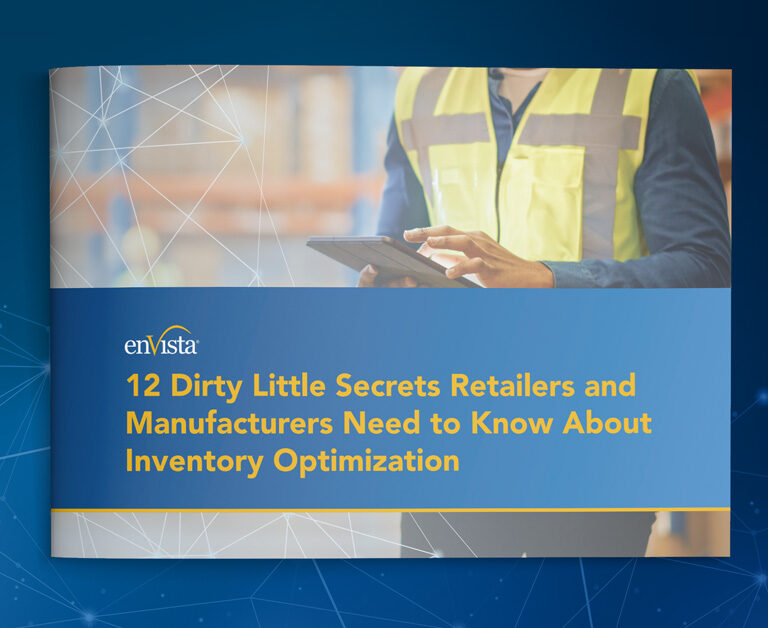To remain competitive and profitable, businesses must find seamless, cost-effective methods for optimizing internal scalability and performance. ERP technology delivers these benefits by offering a comprehensive ERP software selection that addresses a company’s current and future needs and goals.
Choosing the right cloud ERP system begins with learning about the system. For example, is it scalable? What are its functional capabilities? What integration and customization options does it provide to make the implementation process as straightforward as possible?
Industry experts highly recommend learning more about ERP selection criteria, such as vendor selection and reputation, support services and security strategies, to utilize state-of-the-art ERP technology.
ERP Selection Criteria
Take enough time to learn the specific criteria for selecting the best ERP system for your business. While selection criteria may vary among companies, general criteria apply to all businesses.
1. Define the Business Needs an ERP System Would Fulfill
Expenses involved with selecting, customizing and implementing an ERP system vary, depending on the size of your business, the complexity of your processes, the ERP system you choose and other factors. Some companies might consider ongoing services, including maintenance, support, training, upgrades and licensing fees.
Be aware that costs are incurred before obtaining an ERP system and during its implementation. The expenses related to the configuration and integration of an ERP system, project management and consulting services should be included in your budget.
To sustain ERP technology, additional hardware, such as storage devices, services and upgrades to on-site infrastructure, may be needed before full integration can be completed.
2. Consider Budget Constraints
Because your business is constantly changing and evolving, it is important to make sure that the ERP system you choose is flexible and can grow with your business. . You must be prepared for changing market conditions. You must be ready to implement new operating procedures as needs arise, and you must be equipped to handle long-term growth effectively and efficiently.
That’s why it is so important to invest in an ERP system that not only meets the needs of your company today but can also be scaled and modified to meet your needs over the next decade or more. The top ERP vendors should have both longevity and experience on their side, ensuring your ERP solution will support your business today and in the years to come.
ERP Upgrades and ROI Gains
Companies must make investments that provide positive ROI results to fuel consistent profit increases. Upgrading an existing ERP system provides ROI gains by streamlining operations, reducing errors and facilitating productivity. Companies that select the correct ERP software see better customer satisfaction rates as business processes improve from stagnant to dynamic.
Companies achieve higher ROIs that drive sustainable expansion and financial growth by maximizing processes and leveraging real-time insights. Implementing ERP technology makes these goals feasible and viable.

How to Choose the Best ERP System for Your Business
Selecting the right enterprise resource planning (ERP) platform is one of the most important technology decisions an organization can make – learn how to choose the best ERP system for your business.
3. Consider Scalability Needs
Successful businesses respond reflexively to trends, the economy, consumer demands and technological advancements.
The ERP system you select should be just as scalable, equipped to adapt to changing market conditions, support new operating procedures and efficiently accommodate long-term growth.
Investing in an ERP system that meets your company’s current and future needs is vital to maintaining its progressive development. The best ERP vendors offer the longevity and experience needed to support your business for decades to come.
What to Know About Cloud ERP vs On-Premise ERP
The primary differences between cloud ERP and on-premise ERP involve where information is stored (on remote servers or company servers), whether one upfront investment (on-premise ERP) or subscription-based payments (cloud ERP) is made and whether on-premise maintenance is performed or the cloud service provider takes care of updates and maintenance.
Advantages of Cloud ERP Systems
- Minimal downtime and instant access to new features due to automatic updates
- Scalability to accommodate increasing data volume, business expansion and growing user base
- Reduced need for IT maintenance ( ERP vendor is responsible for maintenance)
- Remote access to data
- More affordable than on-premise ERP systems
Read about the Microsoft Dynamics 365 system to gain better insight into a scalable cloud ERP solution.
In addition to ERP applications, Microsoft Dynamic 365 includes analytic and AI tools to help you analyze customer behavior and purchase motivations on a deeper level.
Disadvantages of Cloud ERP Systems
- Possible data security concerns
- Limited customization features
- Depends on internet connectivity
- Potential for service outages
- Ongoing subscription expenses
Advantages of On-Premise ERP Systems
- One-time expenditure (no subscription costs)
- Fewer issues with data security
- Operates independent of internet connectivity
- Integrates well with existing systems
- Wider selection of customization options
Disadvantages of On-Premise ERP Systems
- Needs full-time IT maintenance services
- Limited scalability
- Takes much longer to implement than cloud ERPs
- Reduced remote access availability
- Higher initial costs than cloud ERPs
4. Evaluate Integration Capabilities
The ERP solution your organization selects should integrate seamlessly across all your software applications, streamlining business processes and information flow from finance, HR and manufacturing to sales and marketing, distribution and supply chain management. A fully integrative system will earn its keep by improving productivity, increasing revenue and reducing costly downtime.
5. Consider End-User Capabilities
When evaluating an ERP system, businesses should consider whether sufficient resources exist to train employees who have difficulty grasping ERP technology. Businesses might also want to explore ERP solutions with intuitive interfaces that help minimize the need for extensive training by adapting to user responses. Balancing training capabilities with user-responsive features facilitates a smoother transition and a more effective system application.
6. Carefully Evaluate ERP Vendor Selection
Factors shaping decisions concerning ERP vendor selection include:
- Their reputation and experience as an ERP vendor
- Support services (24/7, only during business hours, weekend support, etc.)
- Customer feedback and online reviews
- Scalability of their ERP system (user capacity, ease of functional expansion, multilocation ability, etc.)
- Reliability percentage of the vendor’s ERP system
- Responsiveness to inquiries (direct contact number, email, online message communication, etc.)
- Case studies of how their product improved business workflow and revenue
- Whether they’re continuously refining their product through innovative developments
7. Make Sure to Calculate Risk During ERP Selection
Working with the best ERP vendor guarantees your business will reap the immediate benefits of reduced risks involving data breaches, system failures and difficult transitions. Reputable vendors prioritize customer satisfaction and address business needs to maintain long-term customer partnerships.
8. Draw Out Implementation Constraints
The time it takes to implement an ERP system fully depends on several factors:
- System complexity (scalability and customization options)
- Size of the company’s infrastructure
- Whether the ERP system is being fully deployed (can take up to a year to implement) or if it’s a partial or phased deployment (may take several months to implement)
- Volume of data migrating from existing legacy systems
- Availability of supervisory and staff resources
The impact of ERP system deployment on businesses involves temporary disruptions to daily processes, modification of existing business systems that affect workflow and challenges to transferring data without posing security risks. In addition, employees will require time to learn to use the new system, which could reduce productivity to varying degrees.
Start Your ERP Consulting Journey Today With enVista
With 20 years of experience, enVista has helped some of the world’s largest brands in their ERP software selection process and implementations. Whether it’s ERP selection, implementation, integrations or ongoing support, enVista leverages best practices and extensive industry and enterprise technology experience to maximize the success and value of your projects. Let us know how we can help make your ERP project a little less daunting. Contact enVista today to speak to one of our ERP consultants.







